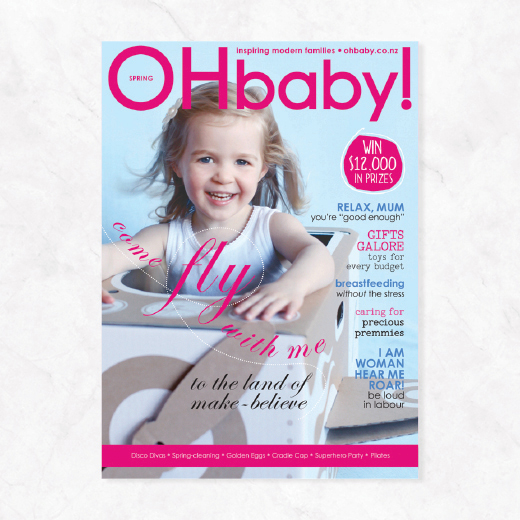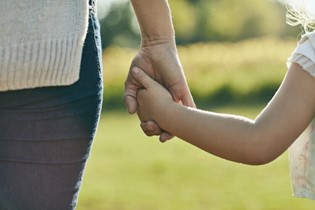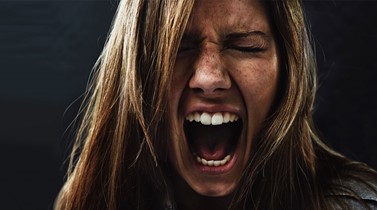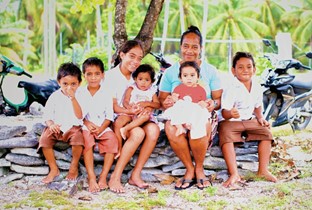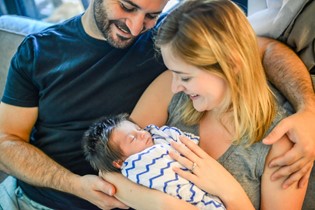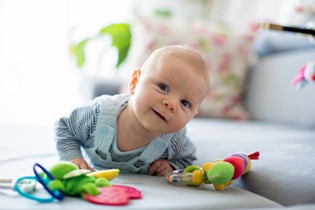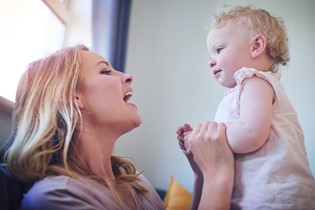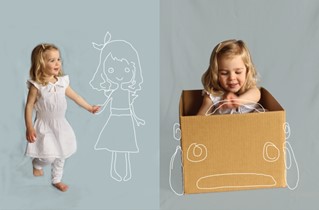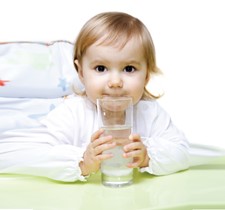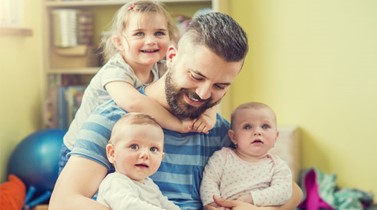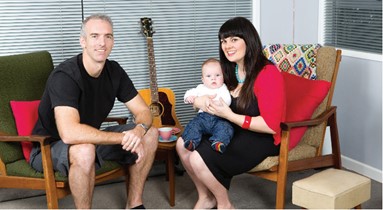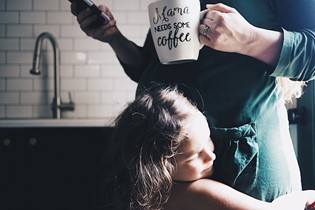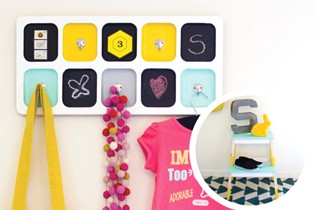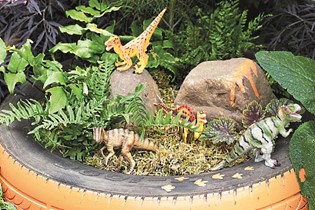Celebrating small miracles in big ways
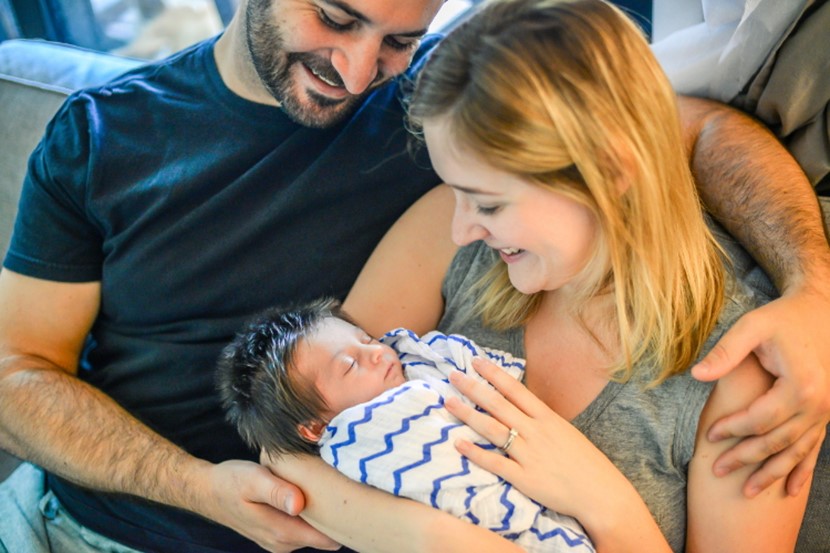
Writer, magazine veteran and now grandmother, Lindsey Dawson, celebrates those little miracles who brighten our lives.
Birth is thrilling. No sound sears straight into your guts like an infant's first cry. "Listen!" baby is squalling. "I've made it! Hold me, feed me. Everything I am - everything I ever will be - depends on you now.
They look up into your eyes with a puzzled, milky squint, stunned by the struggle it took to arrive, dazzled by the light, shocked by sounds that are no longer muffled by shielding muscle, flesh and blood.
And the grown-ups laugh and cry and gaze ardently back. In a heart beat, we're in love. Cue the flowers, the phone calls and the digital images zapped around the world.
The business of being birthed is the beginning of everything for the baby. Of course, it's massive for every parent too... especially for mothers.
It's a confusing time - a blend of ecstasy and angst. For first-time mothers especially, birthing is so huge and confronting that at first you barely know what to think or how to feel.
Inside each newborn is an entire world of promise. And it's only now that you realise your huge new parental responsibility.
The classes you've attended, the books you've read, have focused almost entirely on the physical process of giving birth. With a shockingly fresh person in your arms your apprehension can be huge, for now you're in charge of a real, live soul.
With each new baby comes the realisation that your world will never be the same. If you've already had a baby you know that already, but first-timers will discover feelings they never knew before.
It's as if some internal switch clicks with a huge, velvety thunk. Once that mother-current is flowing, the state of the planet suddenly seems more urgent. Because your baby's here, his or her presence makes everything seem more important and relevant. Be warned: watching the news can become dangerous. In your new awareness of the fragility of life, pictures of injured or desperate children in lands far away can bring you to tears. Once you might merely have felt concerned at such a sight. Now you want to weep.
But two things are going on. Even while your global awareness is expanding, your everyday mind zooms in on what your baby most needs - food, sleep, closeness, warmth.
Curious to know what had happened at the births of famous people, I've spent hours scanning the beginnings of biographies. I found births aren't mentioned much. By the time someone's put in some action-packed decades, their arrivals usually barely rate a mention. But I did find peeks of insight...
Famous births
Jean Batten, New Zealand's pioneer female flyer, was born in 1909 in a Rotorua cottage to the sound of her father playing the flute. While her mother Ellen laboured in the back bedroom, father Fred was in the living room at weekly practice with members of an instrumental group. Jean arrived to the sound of Schubert's Trout Quintet.
Another pioneer aviator, Charles Lindbergh, was born on a freezing Detroit morning seven years earlier. "Look at the size of those feet," the doctor said to Mrs Lindbergh. "You ought to have 17 like him."
He was however to be her only son. Soon after birth he was wrapped up and laid next to an open window to take in the fresh, if frigid, air. They thought early exposure to chill was healthy back then.
Then there was the Indonesian girl born in a monsoon, the rain battering at the roof. As she emerged the ceiling collapsed, drenching mother, baby and attendants. The name she was given meant Cloud and in 2001 she became president of her nation as Megawati Sukarnoputri.
Such high excitement around birth does not, of course, necessarily affect future achievement. But when you hear about what went on at the arrival of babies who would later become famous, you do learn how important it is that we keep on whispering, "Welcome, little one. We adore you."
Actress Billie Piper's mother sure did. In Billie's autobiography, Growing Pains, her mum recalled, "She had these huge, dark eyes that stared right back at me and thick, jet-black hair. I leaned closer to her ear to tell her that she was the most beautiful baby in the whole hospital. And I believed it. I thought the others were hideous in comparison. I felt sorry for their mothers. How was I to know that all the other mothers felt the same?"
Universal love is common. "I was utterly charmed by the stunning newness of her, the extraordinary actuality, the something-from-nothing miracle of her, all over again. A second child was every bit as magical as a first," wrote New Zealand poet Lauris Edmond in her autobiography about the arrival of second baby, Frances.
"He was the most beautiful thing I had ever seen. He was like moonlight," sighed author Anne Lamott about her son Sam in her book, Operating Instructions: A Journal of My Son's First Year.
Twenty years earlier another American author, Anne Morrow Lindbergh, could hardly believe her fortune in having her second child. She'd married Charles (the same high-flying Charles mentioned earlier) and they'd already had a boy, Charlie.
He'd been kidnapped and murdered at 20 months in one of the biggest news stories of the 1930s. Then, along came Jon.
"Out of the teeth of sorrow - a miracle. My faith had been reborn," wrote Anne in her diary.
Surprise and wonder hits everybody. Former Green MP Sue Kedgley shared her feelings in a 1991 article in Next: "It took some time to conceive, but finally, with a lot of luck (and a little help from a Chinese herbalist) I managed it at the grand old age of 41. And so, nine months later, there I was - gazing with incredulity and wonder at a vulnerable little being called Zachary, staggered at my ignorance about babies, and wondering how on earth I was going to look after him when I barely knew how to change a nappy."
Beautiful babies
Of course, our own babies are always stunning.
"She was an exceptionally beautiful baby with masses of black hair, an adorable turned-up nose and a mouth drawn by the gods," wrote Australian fashion guru Maggie Tabberer about her daughter Amanda, in her book, Maggie.
We feel this way even if, prior to motherhood, other people's infants haven't impressed us at all.
"I had never warmed to babies much; I liked children when they were old enough to answer back. But that was before I had my own. When I looked into my daughter's sweet face and huge eyes, I felt such overwhelming pride," wrote the Duchess of York about Beatrice's birth in Sarah, The Duchess of York: My Story.
But instant happiness isn't guaranteed, especially for mothers struck by postnatal depression. Queen Victoria, who had nine children over 17 years, was an old hand at the "baby blues".
"Occasional lowness and tendency to cry you must expect," she wrote to one of her daughters. "It is what every lady suffers with more or less and what I, during my first two confinements, suffered with dreadfully."
However, singer Helen Reddy was so thrilled to be pregnant she was reluctant for it to end.
"When I went into labour I found myself not wanting to give birth; not because I was afraid of the pain but because I couldn't bear the thought of my baby and me never being that close again," she wrote in The Woman I Am.
Of course, ultrasound scans give parents the power to connect - and start worrying - months before baby takes his first breath.
In her parenting book, Mommywood, Tori Spelling recalled fixating during a scan on the large size of her son Liam's nose.
"There he was, all perfect. Head, eyes, ears, but well…I didn't want to admit it, even to myself, but something was bothering me. His nose."
Even for the rich and famous, mothering means worrying. But we can at least be grateful we live in the here and now. In New Zealand's early days there was every reason to fret. Pioneer missionary wife Eliza White endured several tragedies before she could rear a healthy child. Her first baby was stillborn, the second died at eight months and the third was strangled at birth by the umbilical cord.
Then, finally, she could write home in 1834: "He is very healthy and very lively and very good so you must think we are not a little proud of him, and yet we hold him with a trembling hand lest so sweet a flower should be blighted." Her letter is still in the Anglican Church archives.
Daddy love
We're talking mummy love here, but daddies get the feeling too - though they may express it differently. In More Magazine way back in 1990, writer Colin Hogg reported a conversation he'd had with a midwife about gleeful new daddies.
"Fainting doesn't happen that often. It's usually the man who's pretending he's got it all together and he hasn't at all. But sometimes they cry, and that's lovely. And sometimes they fling their arms around your neck and give you a big kiss. That can be a bit surprising - an ecstatic man suddenly kissing you."
Leave it to a bloke from history who said 70 years ago what still needs to be said about the importance of mothering. Pioneering doctor Grantly Dick-Read wrote in a then-controversial book, Childbirth Without Fear, "In every newborn child there is a new hope; to every mother the people should give thanks."
So, every now and again, do something nice for your mum. If you're expecting, look after yourself. And remember that when women we care about are expecting, they deserve special hugs.
The rest of us can only love and wait. And get ready. For look out! New person coming in!
Lindsey Dawson is a writer, TV presenter and the mother of two extremely grown-up daughters and grandmother of three. The youngest are identical twins. She confesses she can barely tell them apart and given their skills in melting her heart, knows she's in long-term trouble.

AS FEATURED IN ISSUE 19 OF OHbaby! MAGAZINE. CHECK OUT OTHER ARTICLES IN THIS ISSUE BELOW
